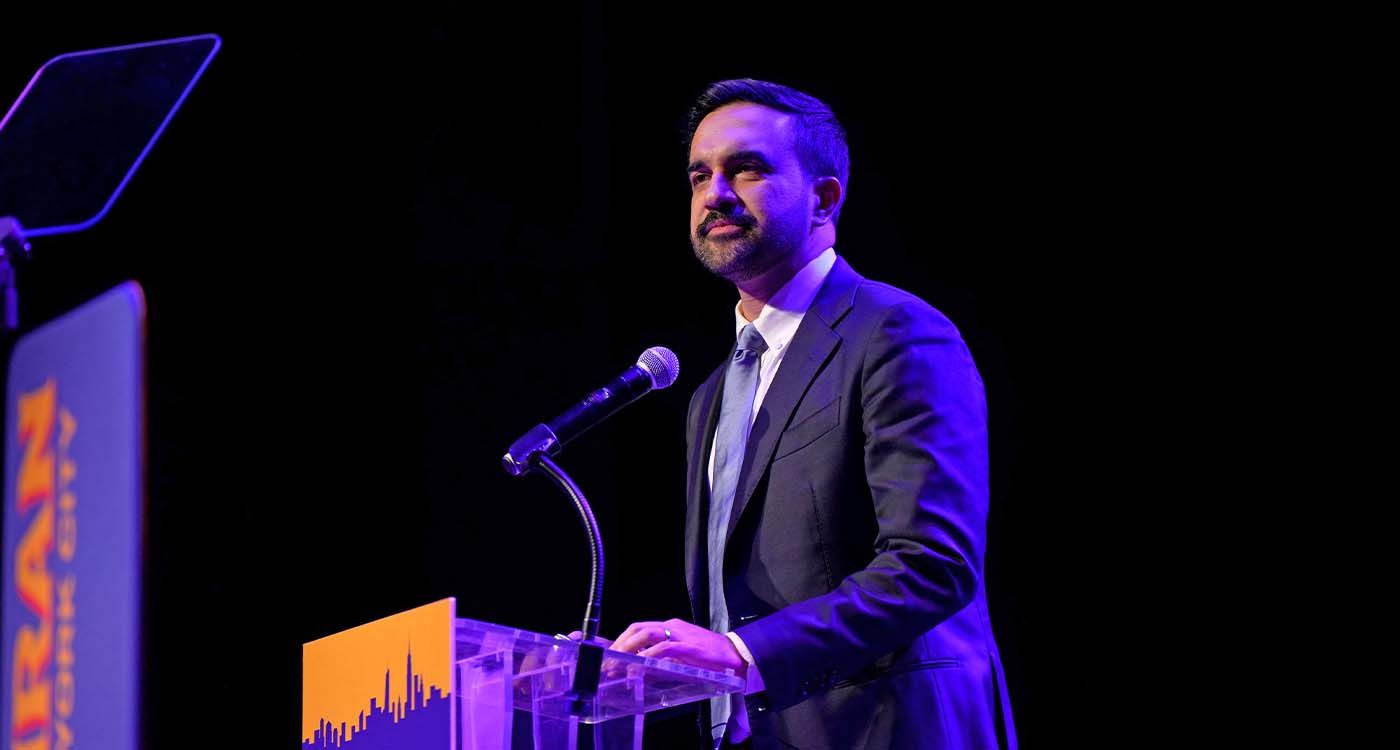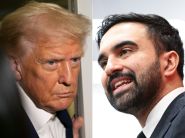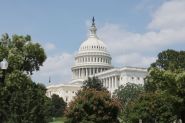- Home
- Middle East
- Mamdani: Debunking the Fallacies of an Islamist Demagogue

©ANGELINA KATSANIS / AFP
Mamdani is deliberately positioning himself beyond the pale of the American civic culture and its foundational narratives.
The New York elections attest to the ubiquitousness of domestic political events in a globalized era and more specifically in New York City, which recapitulates the promises, illusions, and contradictions of the global era. The overlapping variables of the urban order and its economic, social, cultural, and religious factors coalesce to define the configurations and the dynamics that feature it. If we ever fail to understand the interrelatedness of the variables at stake and their shifting dynamics, we incur the risk of misrepresentation and mismanagement of whatever issues are at hand.
The elections in New York summarize the challenges of a changing American landscape and the need to retool our analytical grids to get a better grasp of the problems. The abrupt societal transitions occurring in a city dealing with demographic, cultural, economic, and religious changes invite political actors to review their playbook and strategies if they are to impact the course of events and address the needs and challenges of their constituencies. Zohran Mamdani's profile is part of this changing landscape and the challenges it raises for policymakers and civic leaders.
There is nothing specific about his profile aside from his obtrusive Islamist militancy and its agenda and his vocal antisemitism. The socialist featuring of his political agenda is a fake representation of what he really stands for: his overt Islamist agenda with flimsy social policy clothing. The mere listening to his rhetoric conveys how faked and spurious are his social policy claims and credentials. While addressing the social issues at stake, observers are referred to an elementary demagoguery, which may apply to Third World countries where social issues are not codified, social policies are nonexistent, and public governance is absent.
New York City is historically the passageway that embodied the American dream for generations of migrants. Each migratory wave had to cope with the demanding tasks of integration. The demagoguery that frames Mamdani’s campaign is to represent it as the “dawn” of a new era. The mundane politics of our age are well defined through the interplay among the clustered variables and their incidence on political and social policymaking. The questions of public transportation, child care, and household budgeting are debated at every level of governance and managed through a well-knit web of federal and state agencies. There is nothing specific about these questions where he can claim an innovative input.
Financial, economic, and social policymaking is managed at the different levels of governance, ranging from the federal state agencies to the civil-society actors and their richly textured associative networks. The fake messianic claims of this Islamist demagogue partake of the crisis of political representation in the Western democracies, the debunking of the social myths and politics attached to the socialist narrative, the disarraying effects of financial deregulation and de-industrialization, the substantive restructuring of the professional landscape, and the massive migration elicited by the destructive effects of failed modernization, state failures, abrupt ecological disruptions, the brutality of dictatorships, and the breakdown of normative regulations.
Mamdani is an Islamist militant co-opted by the Democratic Party strategists to claim back their lost credentials and constituencies. The wokists who have taken hold of the party have no other choice but to undermine the national legitimacy of the United States, question its democratic institutions, and misappropriate its public resources to cater to a sectarian political agenda. We are far away from the bipartisanship that characterized the Beltway politics and the American public life at large. The cultural wars, which have been defining the political landscape for the last two decades, are worse than hazardous. They were intentionally instrumented to question the American meta-narrative, its Biblical foundations, Christian intellectual and ethical legacies, and rootedness in the intellectual odyssey of Western civilization.
It is no coincidence that Mamdani’s acceptance speech was eminently political and frontally challenged President Trump. Whereas he was entrusted with the administration of a global city, he deliberately overlooked his primary task as a mayor. The power politics framing of his inaugural address betrays his underlying Islamist agenda. The victory of the Democratic Party is a litmus test that revealed its profound fractures and its inability to restore back the bipartisan culture featured by the earlier generations. Put in other words, the future of the Democratic Party is at stake, and the forthcoming political developments in New York and elsewhere are highly significant since they will delineate the new political configurations of the American political landscape and its actors.
Otherwise, it is going to test the ability of Mamdani to build a professional credibility while addressing public policy issues and dealing with the tasks of daily governance. His total inexperience and the absence of basic knowledge in economics, public policy and governance question his credentials and ability to run a global city like New York. Aside from the fact that the sectarian overtones of his political agenda fundamentally clash with the American national and civic culture, Mamdani, as an Islamist and wokist militant, has put himself beforehand outside the scope of the national and public conversation and its constitutional safeguards. He is deliberately positioning himself beyond the pale of the American civic culture and its foundational narratives. His bombastic rhetoric and its false messianic overtones need to be deconstructed and portrayed for what they are: demagoguery and ideological fraud
Read more




Comments